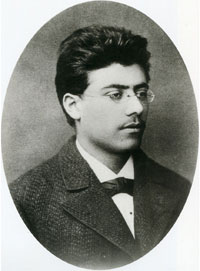The Slipped Disc daily comfort zone (146): Here’s one Mahler made earlier
mainA college work, played by Martha and the Maiskys.


A college work, played by Martha and the Maiskys.

The Málaga Film Festival last night premiered a…

The Moldovan soprano Valentina Nafornița, who was twice…

The Polish pianist Rafal Blechacz went into the…

There’s room at the top of Canadian Opera…

Session expired
Please log in again. The login page will open in a new tab. After logging in you can close it and return to this page.
Comments